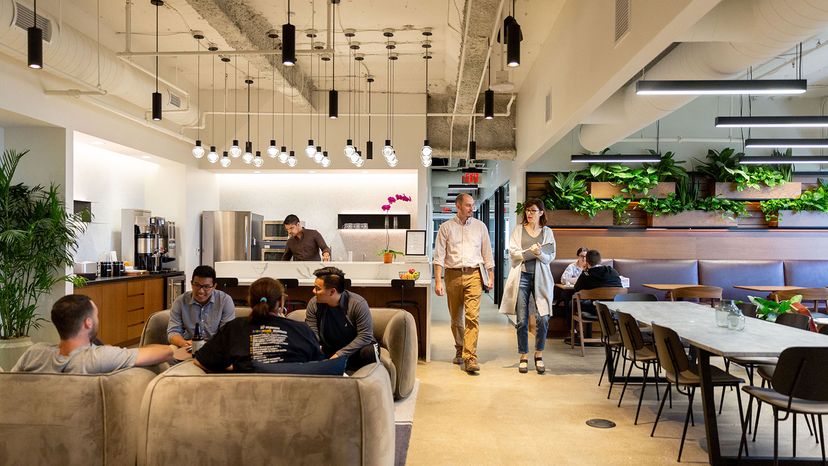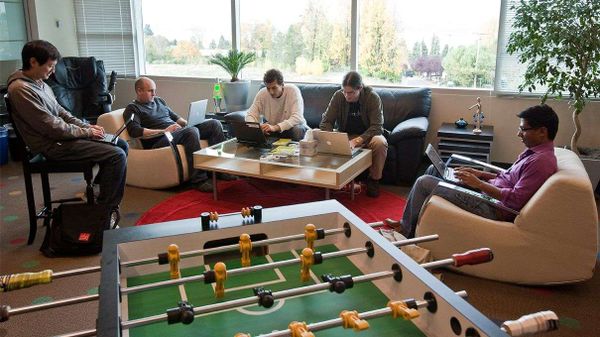
Back in 2007, there were a grand total of 14 coworking spaces worldwide. It was the early days of the gig economy, when freelancers and other independent workers were just figuring out that working from home wasn't all it's cracked up to be. Looking for someplace other than Starbucks for the holy trinity of WiFi, coffee and camaraderie, they discovered coworking.
Coworking spaces are hip, members-only workspaces designed with the mobile modern worker in mind. Picture the set of a movie about a cool Silicon Valley startup. Lots of natural light and exposed brick, good-looking people with laptops spread across high café stools, leather couches and glass-walled offices. For a monthly fee, members get access to more than a state-of-the-art workplace with speedy WiFi and snacks; they join a thriving community of like-minded entrepreneurs.
Advertisement
Coworking has exploded over the past decade, and forecasters think the biggest growth is yet to come. Starting with those 14 pioneering coworking spaces in 2007, the total grew to 14,000 in 2017, and that number is expected to more than double to 30,000 coworking spaces worldwide by 2022. That's an annual growth rate of more than 16 percent.
Steve King is a partner at Emergent Research, which came up with those ambitious figures. "We rarely forecast something to grow that fast," says King.
King cites three converging trends that have fueled the coworking revolution. The first is the steady growth of an independent workforce that craves social and professional connections. The second is a vibrant startup culture that prizes flexibility and can't be tied down with a traditional five-year lease on office space. The third is a growing interest from established corporations in setting up shop in creative workplaces that attract new talent and invite out-of-the-box thinking.
"You bring those three things together and you have a booming industry," says King.
One of the coworking industry's biggest success stories is WeWork, which now has 600 office locations in 100 global cities. The company, founded in 2010, has racked up $13 billion in funding and is currently valued at $47 billion. WeWork represents one type of coworking model, which is a large venue housing everyone from freelancers just needing a desk station to small startup teams to a whole-floor corporate residency. Similar coworking companies include Industrious and Serendipity Labs.Industrious started in 2013 and currently has 60 locations in 34 U.S. cities, with at least 11 more locations slated to open this year. (Full disclosure: HowStuffWorks is in a coworking space as well.)
Outside of these large international chains are thousands of smaller neighborhood joints in tech hubs like the Bay Area, New York and London, and niche coworking spaces serving specific groups and industries. "There are spaces for biotech firm, for writers, for the marijuana industry," says King. "Name a vertical and there are coworking spaces for it." Coworking spaces exclusively for women — like The Wing, Hera Hub and The Riveter — are also drawing crowds.
Advertisement


